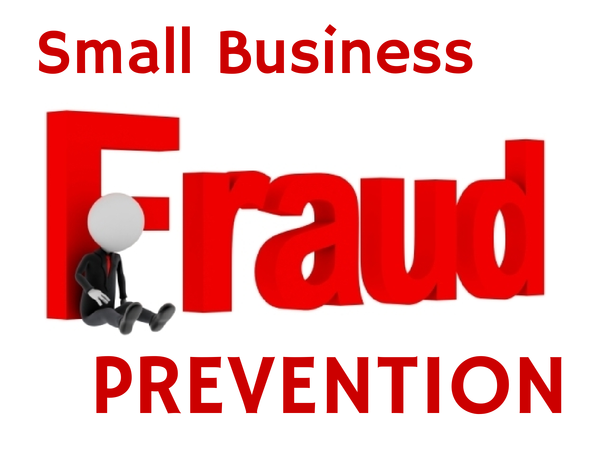Don’t Let Your Small Business Fall Victim to Fraud
- admin
- September 9, 2014
- 0 Comments

Large corporations make the headlines when they fall victim to fraud. But smaller organizations are often even more at risk.
Many small business owners believe they are safe because they don’t offer a juicy target. They feel no one will be interested in stealing from them. But small businesses are often more vulnerable, as they have fewer resources to invest in the necessary checks and balances against fraud.
One simple, powerful, cost-free way to arm yourself against fraud is to know and recognize the different types of scams that typically plague smaller organizations. Following are descriptions of 4 of the most common types, with tips on prevention.
1: Billing schemes
What are they?
According to Business in Vancouver, this type of fraud is one of the most common in smaller companies. Most often, an employee bills the company for fictitious services or products. Of course, no services are provided and the employee pockets the money.
How to prevent them
The best way to prevent billing schemes is to issue purchase order numbers for all purchases. Make sure every invoice is checked against the original PO.
2: Payroll fraud
What is it?
Cheque tampering, payroll fraud and skimming schemes are also common in small businesses:
- Cheque tampering is when employees write cheques to themselves. A bookkeeper, for example, could write two cheques every time she pays an invoice. One cheque is a legitimate payment to a reliable vendor. The other cheque is a small payment she makes to herself but enters into the books in the same name as the vendor.
- Payroll fraud happens when employees pad their timesheets.
- Skimming schemes are most common in retail businesses when a cashier collects cash at the till, but does not enter the transaction into the company records.
How to prevent it
Reconcile balance sheet accounts and payroll records every month. If you see something suspicious, ask questions until you’re satisfied with the answers. Ideally, have more than one person signing checks and reconciling your company bank statement.
3: Invoice scams
What are they?
There are many different types of invoice fraud, including domain renewal notices and directory invoice scams. Here at 411.ca, we recently discovered that companies pretending to be affiliated with us are sending invoices to unsuspecting businesses who haven’t purchased our services.
How to prevent it
Review every invoice you receive. Make sure they include a valid telephone number and an address. Never pay an invoice without verifying the order is correct and that you’ve actually purchased from the company. You’ll find more guidelines in this document [Link coming shortly…] designed to make you more aware of fake invoices and solicitations.
4: The toner phoner scam
What is it?
The toner phoner scam, also called phony invoice fraud or mystery office supply fraud, is when someone phones your company and asks about the make and model of your fax machine or printer. At the same time, they collect the name of a company decision-maker.
They then either send an invoice to the decision-maker for toner you never received or they may ship you low quality toner with an invoice at an inflated price. When you don’t pay, you receive harassing phone calls along with threats of legal action.
How to prevent it
Educate your receptionist and everyone else who answers your phone not to give out information about company office equipment. Assign a company buyer who’s responsible for all purchases and get them to implement a purchase order system.
If you do run into a suspicious business practice, be sure you report it to the Canadian Anti-Fraud Centre at 1.888.495.8501. Even if your business hasn’t lost any money from the scam, it’s still important to give investigators information that could help with criminal investigations.
Trust is a poor fraud control
A lack of internal controls is the primary cause of almost half of all fraud cases. Take a look around your office/systems today and plug any obvious holes (e.g. financial duties all in the hands of one person).
Remember, trust is a poor fraud control. Routine checks, ideally unannounced, will lower your risk. Frauds are often identified by whistleblowers – consider a confidential whistleblower program.
Pay attention to clues such as a sudden change of vendor, missing receipts, or slow responses to requests for financial information. Fraud is often committed by trusted, long-term employees, and recovery ranges from difficult to impossible.
About 411dotca Blog
Ideas, recommendations and tips for connecting with local businesses in Canadian neighbourhoods.
#LocalsLoveUs
Subscribe to our blog
411dotca Facebook
DISCLAIMER

